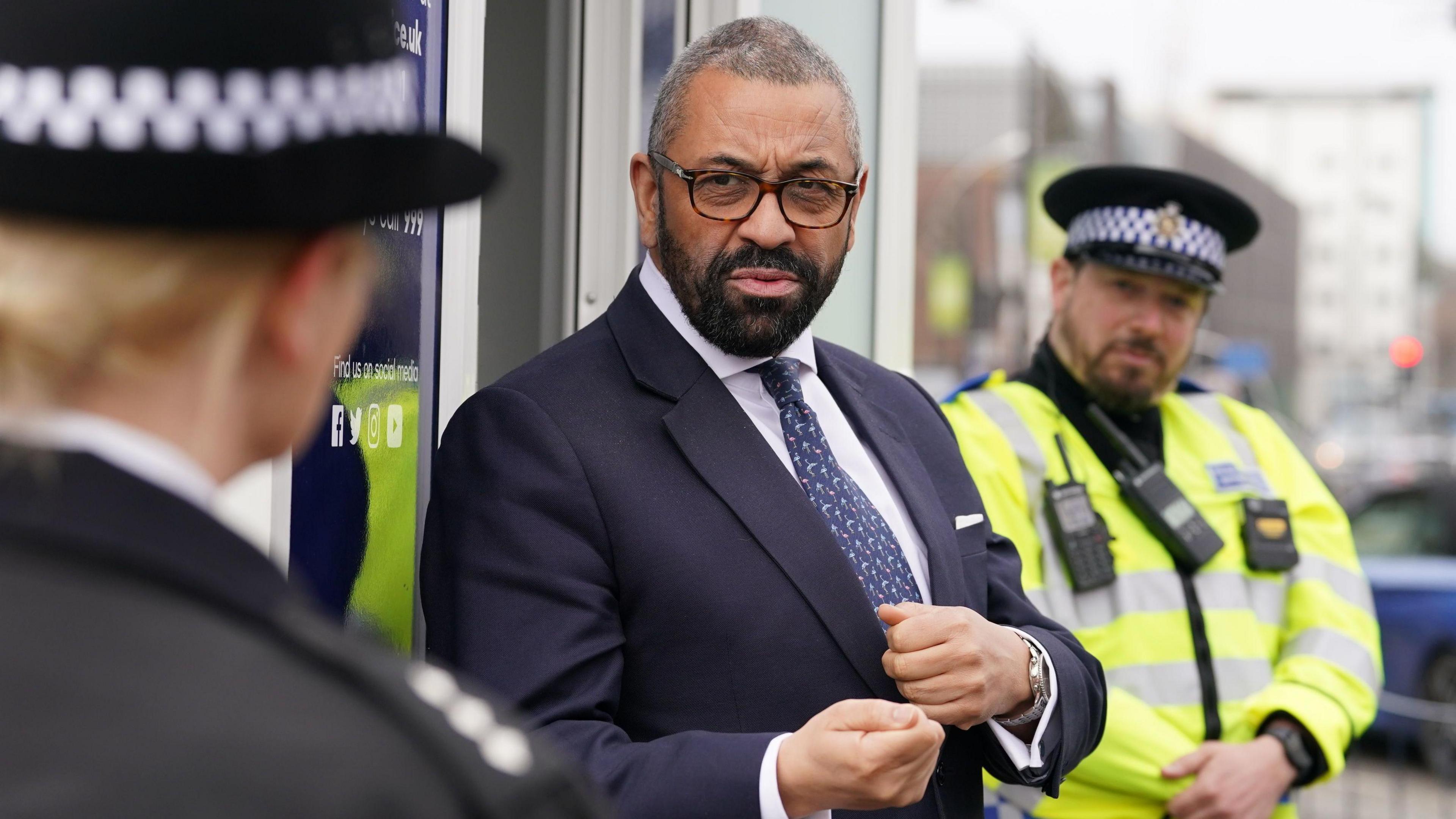Home secretary promises change to law on spiking

Home Secretary James Cleverly says perpetrators will be “held to account” by the changes in the law on spiking
- Published
The home secretary has vowed to crack down on spiking saying perpetrators will be “held to account” by changes in the law.
James Cleverly accompanied Sussex Police officers on Crawley High Street on Thursday to see the work being done to tackle the crime.
He said the government is updating legislation to make it clear spiking is a crime, one which he described as "habitually underreported".
Spiking is already illegal and happens when someone puts alcohol or drugs into another person’s drink or body without their knowledge or consent.
The National Police Chiefs’ Council says forces receive 561 reports of spiking per month but it is believed to be underreported because of harmful “myths and stereotypes” against victims.
Mr Cleverly said: “We know that we have to protect women and girls who are predominantly the victims of this crime type, which is why we’re taking this so seriously.”
The Home Office announced a number of measures in December to tackle spiking, including training door staff to spot perpetrators and investing in research into fast spiking test kits to help quick detection of spiking by police.
Sussex Police's Assistant Chief Constable, Paul Court, said forces wanted to reassure people that if they have been a victim of spiking to report it to the police as soon as possible.
He said: “There’s a lot of activity going on across night-time economy so where people are drinking in bars and pubs across towns across Sussex they’re going to see enhanced police presence.
“We’re reminding people of the importance of this and actually, if you’re intent on committing this crime, we’re going to bring you to justice through an investigation."
Mr Cleverly previously apologised for making an "ironic joke" about spiking his wife's drink at a Downing Street reception.
Follow BBC Sussex on Facebook, external, on X, external, and on Instagram, external. Send your story ideas to southeasttoday@bbc.co.uk, external or WhatsApp us on 08081 002250.